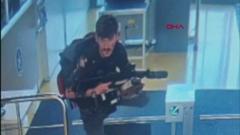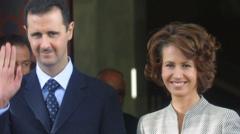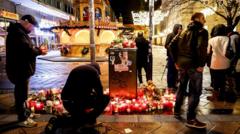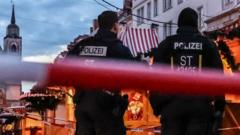The recent attack near Ankara that left five people dead and 22 injured has raised questions about Turkey's ongoing conflict with the PKK, highlighting the ramifications for national security and civil liberties in the region.
Turkey Launches Strikes Against PKK After Deadly Attack Near Ankara

Turkey Launches Strikes Against PKK After Deadly Attack Near Ankara
In a response to a fatal attack linked to the PKK near Ankara, Turkey's military conducted airstrikes on PKK sites in Iraq and Syria, prompting discussions on national security and the Kurdish rights movement.
Turkey's military struck targets associated with the PKK on Wednesday night following a lethal assault near Ankara that resulted in five fatalities. The government has attributed this violence to the Kurdish militant group, which it has labeled a terrorist organization alongside the US and UK. The assault occurred at Turkish Aerospace Industries (TAI), about 40 km from the capital, during a shift change. Videos captured from the scene depicted two assailants firing weapons at the TAI entrance. Reports suggest that the attackers used a vehicle stolen from a taxi driver who was killed prior to the attack.
President Recep Tayyip Erdoğan referred to the event as a "heinous" act of terrorism in a statement posted on social media platform X, reinforcing the image of the PKK as a significant threat. Interior Minister Ali Yerlikaya reported that the attackers were "neutralized" during the incident. The Turkish defense ministry stated that its retaliatory strikes successfully destroyed 32 PKK-related targets located in Iraq and Syria.
Local media revealed that four of the deceased were TAI employees, with the fifth victim being the taxi driver. The attack coincided with a larger defense fair occurring in Istanbul, which brings additional context to the timing and location of the aggression.
In the aftermath, Turkish officials implemented a media blackout regarding the assault, restricting coverage and social media activity associated with the incident. This reflects ongoing tensions around the freedom of the press and civil liberties in Turkey, especially concerning issues linked to the PKK and the Kurdish population.
As Turkey grapples with the complexities of national security and regional peace, the incident underscores the broader implications of the Kurdish rights struggle and the ongoing ramifications of Turkey's military strategies in the region.
President Recep Tayyip Erdoğan referred to the event as a "heinous" act of terrorism in a statement posted on social media platform X, reinforcing the image of the PKK as a significant threat. Interior Minister Ali Yerlikaya reported that the attackers were "neutralized" during the incident. The Turkish defense ministry stated that its retaliatory strikes successfully destroyed 32 PKK-related targets located in Iraq and Syria.
Local media revealed that four of the deceased were TAI employees, with the fifth victim being the taxi driver. The attack coincided with a larger defense fair occurring in Istanbul, which brings additional context to the timing and location of the aggression.
In the aftermath, Turkish officials implemented a media blackout regarding the assault, restricting coverage and social media activity associated with the incident. This reflects ongoing tensions around the freedom of the press and civil liberties in Turkey, especially concerning issues linked to the PKK and the Kurdish population.
As Turkey grapples with the complexities of national security and regional peace, the incident underscores the broader implications of the Kurdish rights struggle and the ongoing ramifications of Turkey's military strategies in the region.





















